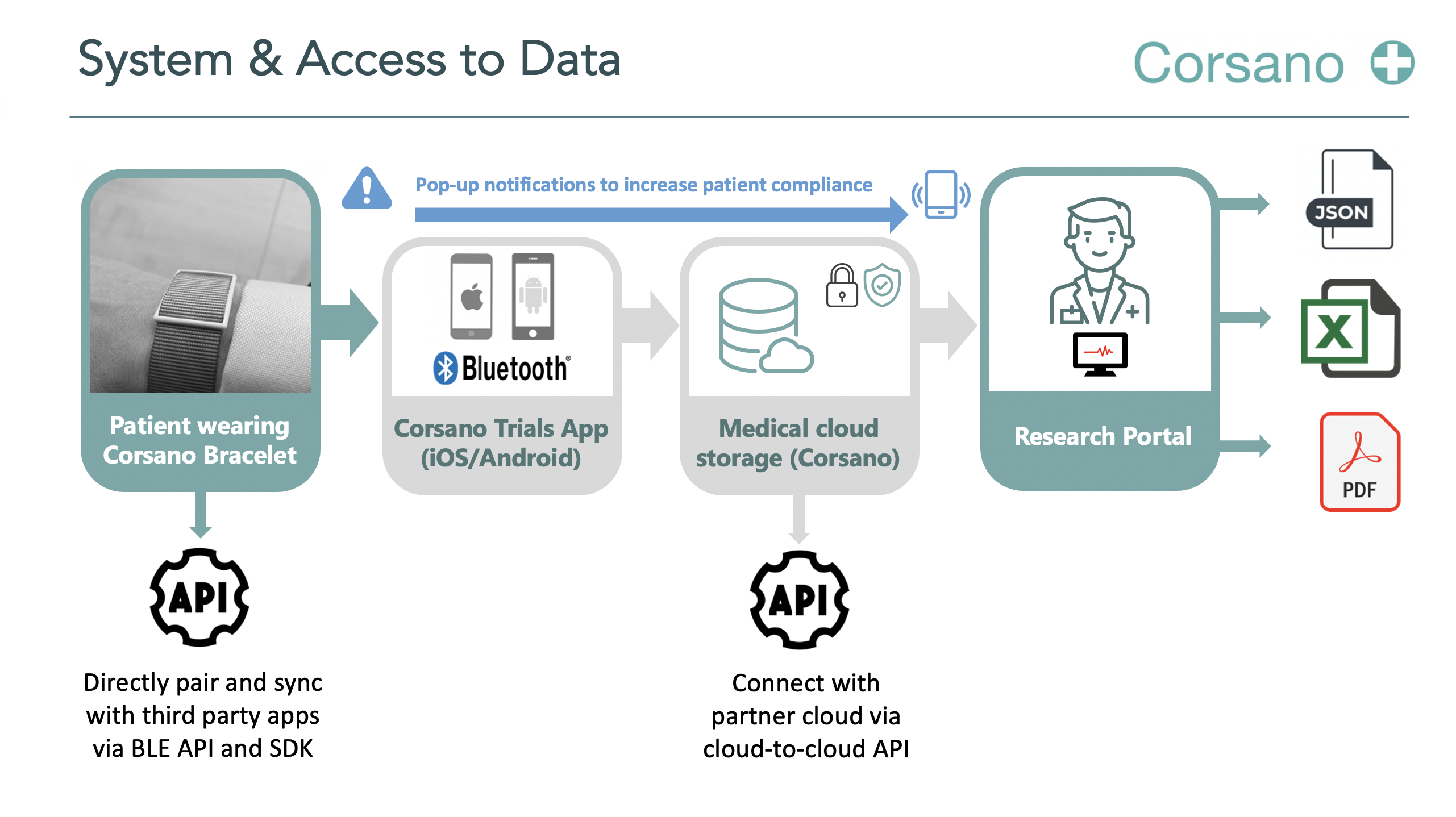Title
The Corsano system for early Sepsis detection (CORSEP) trial. A collaborative trial between Universitätsmedizin Greifswald and Corsano Health B.V.
Background
Sepsis is a life-threatening condition triggered by an overwhelming immune response to infection that damages the body’s tissue and organs. Mortality rates escalate substantially when diagnosis and intervention are delayed. The Global Burden of Disease study in 2017 estimated that sepsis occurred 49 million times, claiming 11 million lives. Unsurprisingly, the World Health Organization (WHO) recognized sepsis as a global health priority in 2017, with the World Health Assembly urging member states to expand efforts to improve sepsis detection and management.
Timely diagnosis and effective antimicrobial therapy significantly enhance sepsis outcomes, but achieving early and accurate detection remains challenging. Several rule-based patient acuity scoring systems, such as the Acute Physiology and Chronic Health Evaluation (APACHE) II, the Systemic Inflammatory Response Syndrome (SIRS) criteria, and the Sequential Organ Failure Assessment (SOFA), have been employed for sepsis identification. Additionally, early warning scores (EWS) like the Modified Early Warning Score (MEWS), the National Early Warning Score 2 (NEWS2), and the quick SOFA (qSOFA) score have emerged as better alternative approaches. Notably, a study comparing these scoring systems in 1496 sepsis patients admitted to general wards found NEWS2 to outperform others.
However, a standardized detection tool remains elusive due to several limitations of current scoring systems. Despite demonstrating high sensitivity, current tools struggle with low specificity, leading to many false positives and potentially unnecessary interventions. Furthermore, these tools were not designed to predict sepsis development, and the requirement for frequent assessments burdens healthcare staff and patients and hinders usability in the ambulatory setting. Additionally, reliance on individual measurements makes the tools susceptible to human error, exposing accuracy and potentially conflicting with the clinical judgment of professionals. Ultimately, discrepancies in response protocols across institutions lead to inconsistent care and potential clinician confusion, compromising patient outcomes.
The limitations of current scoring systems necessitate ongoing research for improved detection tools, including exploring advanced algorithmic approaches. Continuous wearable monitoring technology offers a promising avenue with several advantages. We hypothesize that continuous, automated sepsis detection tools can improve the specificity of sepsis detection by enabling real-time trend analysis of personalized vital parameter values and their relationships while accounting for normal physiological changes due to metabolic needs and activity. Furthermore, wearable technology facilitates ambulatory continuous monitoring, reducing the burden on both healthcare professionals and patients.
Study Design
This study investigates the efficacy of continuous monitoring of the vital parameters (heart rate, systolic/diastolic blood pressure, temperature, respiratory rate, and oxygen saturation) using the Corsano CardioWatch 287-2 wearable bracelet for early sepsis detection in patients admitted to the general ward. This validation and clinical implementation study will assess the performance of early sepsis detection and the feasibility of integrating the Cor-NEWS2, Cor-EWS, and Cor-EWS-AI algorithms into clinical decision-making processes.
This prospective single-center investigator-initiated observational cohort study will take place between April 2024 and April 2025 at the Greifswald Medical Center. Patients received standard medical treatment based solely on a standard monitoring system, as data collected by the wearable monitor were retrospectively analyzed, with real-time data being blinded to medical staff. The study includes patients deemed to be at high risk of clinical deterioration or sepsis following thoracic or gastrointestinal surgery and admitted to the general ward or medium care. Phase I aims to enroll 25 patients with sepsis history and 25 without sepsis history. Phase II aims to enroll 50 patients with sepsis history and 50 without sepsis. Sepsis is defined according to the Sepsis-3 consensus statement [1] as suspicion of infection (SOI; culture collection followed by antibiotics within 72 hours or antibiotics followed by culture procurement within 24 hours) accompanied by a qSOFA score of ≥2. Only the first sepsis event for each patient was evaluated, with the onset time set as the time of SOI.
Inclusion criteria
Adult patients aged 18 years or older undergoing thoracic or gastrointestinal surgery with admission to the general ward or medium care can provide informed consent for study participation.
Exclusion criteria
Patients unable to provide informed consent, unable to wear the Corsano CardioWatch 287-2 (due to reasons such as allergic reactions, wounds, amputations, etc.), unable to receive blood pressure measurements per cuff (due to lymphedema, amputation, dialysis shunt, wounds, etc.), pregnant or breastfeeding women, those with significant mental or cognitive impairment, those requiring immediate intensive care or with pre-existing Do Not Resuscitate (DNR) orders or under palliative care, those diagnosed with advanced cancer or other life-limiting illness with a prognosis of fewer than 2 months.
Objectives
(1) Validation of the Cor-NEWS2, Cor-EWS, and Cor-EWS-AI algorithms.
(2) Evaluate the performance (sensitivity, specificity, time to onset) of the Cor-NEWS2, Cor-EWS, and Cor-EWS-AI scores and compare it with the MEWS, NEWS2, SIRS, SOFA, and qSOFA defined by clinicians.
(3) Assessment of the feasibility of integrating the Cor-NEWS2, Cor-EWS, and Cor-EWS-AI into clinical decision-making.
(4) Evaluate the Corsano CardioWatch 287-2 and system user experience among healthcare professionals and its integration into clinical workflows.
(5) Evaluate the Corsano CardioWatch 287-2 and system user experience and adherence among patients.
Study center
Universitätsmedizin Greifswald (DE)
Start time, Duration
April 2024, 6 months
Interested in our Trial Programme?
Corsano Cardiowatch Bracelets enable continuous monitoring with multiple algorithms. Corsano is working closely with cardiologists, scientists, hospitals, patients, and research organisations. Scientific research demonstrates the legitimacy of Cardiowatch 287 algorithms.
We are currently performing pilots with selected clients. Contact us if you want to know more!
The founders of Corsano Health have over 100 years of experience in the Swiss Watch industry, with deep experience about ergonomic design and materials for wearables that are worn 24/7.
